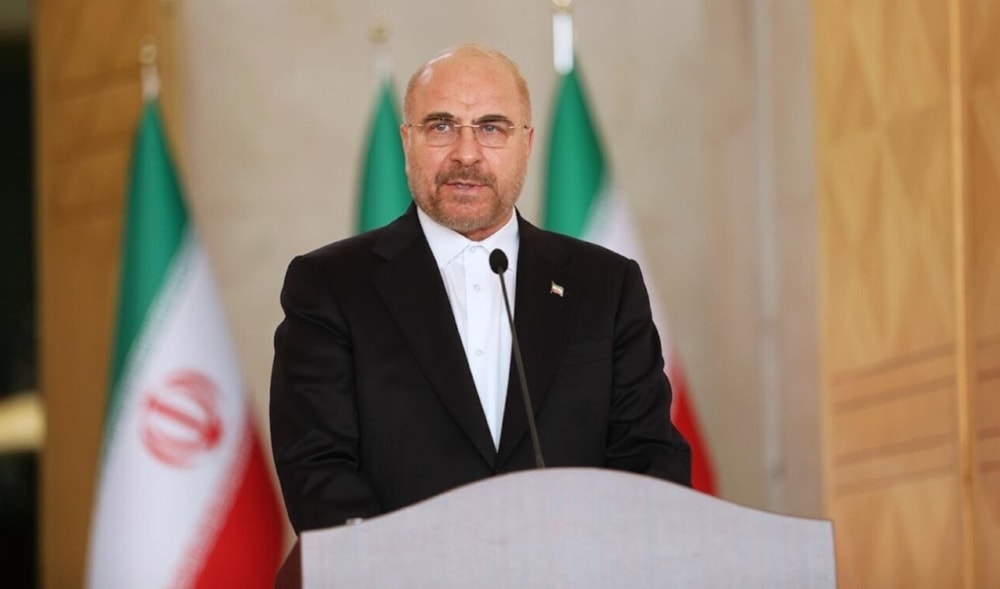Iran urges BRICS parliaments to unite to counter Western sanctions
The Iranian Parliament speaker says Iran is committed to building legislative procedures and collaborative efforts in this field that would result in an effective outcome.
-

Mohammad Bagher Ghalibaf speaks during an address (Social media, undated)
Iranian Parliament speaker Mohammad Bagher Ghalibaf expressed Thursday that the country is urging BRICS parliament members to come together to resist Western sanctions that endanger the people of the bloc's members.
Ghalibaf stated that Iran proposes "the issue of economic sanctions and measures to counter unilateral restrictions that pose a significant threat to the well-being of the people of the BRICS countries should be the focus of the BRICS Parliamentary Forum."
He also revealed that Iran is committed to building legislative procedures and collaborative efforts in this field that would result in an effective outcome.
The 10th BRICS Parliamentary Forum, held in St. Petersburg, Russia, on July 11-12, will focus on improving interparliamentary collaboration. A protocol to the memorandum of understanding will be signed during the forum, along with a joint declaration.
Russia took over the bloc's rotational leadership of BRICS on January 1, adding Egypt, Ethiopia, Iran, and the UAE to its members.
Last month, Iranian Deputy Foreign Minister Mahdi Safari told Sputnik that the recent Western sanctions against Russia have not impacted the agreements between Moscow and Tehran.
"Recent sanctions imposed against Russia have not affected settlements between Iranian and Russian companies. Now, commercial transactions between us [Iran] and Russia are carried out in rials and rubles," Safari said.
BRICS surges to 35.7% of global GDP in 2023; G7 declines to 29%
In 2023, the BRICS countries collectively accounted for a historic 35.7% share of the global GDP in terms of purchasing power parity (PPP), marking an increase of 0.6 percentage points compared to the previous year.
Since its establishment in 2006, the bloc has seen its global economic share rise by 10.2 percentage points, according to Sputnik's analysis based on World Bank data.
Conversely, the G7 nations saw their economic indicators decline to 29%, the lowest in 30 years, losing 0.4 percentage points year-on-year.
Since 2006, the G7's global GDP share has decreased by 9.7 percentage points.
Overall, global GDP in PPP terms reached $184.7 trillion in 2023, reflecting a 7% increase from the previous year.
Meanwhile, the remaining countries outside these major blocs accounted for 35.3% of the world's GDP, maintaining a stable share since 1990, fluctuating within a one-percentage-point range.

 3 Min Read
3 Min Read








